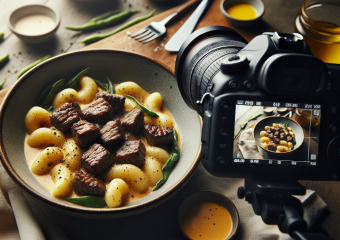Study shows a high-fat diet can make you anxious – Journal Advocate

In times of stress, many of us turn to junk food. But new University of Colorado Boulder research suggests this strategy may backfire.
The study found that in animals, a high-fat diet disrupts resident gut bacteria, alters behavior and, through a complex gut-brain pathway, influences brain chemicals in ways that fuel anxiety.

“Everyone knows that these are not healthy foods, but we tend to think about them strictly in terms of weight gain,” said lead author Christopher Lowry, a professor of integrative physiology at CU Boulder. “If you understand that they also impact your brain in a way that can promote anxiety, that makes the stakes even higher.”
Lowry’s team divided male, adolescent rats into two groups: Half got a standard diet of about 11% fat for nine weeks; the others got a high-fat diet of 45% fat, consisting mostly of saturated fat from animal products.

The typical American diet is about 36% fat.
Throughout the study, the animals’ gut bacteria was assessed. After nine weeks, the animals underwent behavioral tests.
When compared to the control group, the high-fat diet group, not surprisingly, gained weight. But the animals also showed significantly less diversity of gut bacteria (generally speaking, more diversity is considered healthier).

The high-fat diet group also showed higher expression of three genes involved in production of the neurotransmitter serotonin in the brain — particularly in a region of the brainstem associated with stress and anxiety.

While serotonin is often billed as a “feel-good brain chemical,” Lowry notes that certain subsets of serotonin neurons can, when activated, prompt anxiety-like responses in animals. Notably, heightened expression of TPH2, or tryptophan hydroxylase, one of the genes identified in the study, has also been associated with mood disorders and suicide risk in humans.
“To think that just a high-fat diet could alter expression of these genes in the brain is extraordinary,” said Lowry. “The high-fat group essentially had the molecular signature of a high anxiety state in their brain.”
Just how a disrupted gut can change brain chemicals remains unclear. But Lowry suspects that an unhealthy gut compromises the gut lining, enabling bacteria to slip into the body’s circulation and communicate with the brain via a gut-brain pathway called the vagus nerve.
“If you think about human evolution, it makes sense,” Lowry said. “We are hard-wired to really notice things that make us sick so we can avoid those things in the future.”
Lowry stresses that not all fats are bad, and that, in fact, healthy fats like those found in fish, olive oil, nuts and seeds can be anti-inflammatory and good for the brain.
His advice: Eat as many different kinds of fruits and vegetables as possible, add fermented foods to your diet to support a healthy gut and lay off the pizza and fries.





